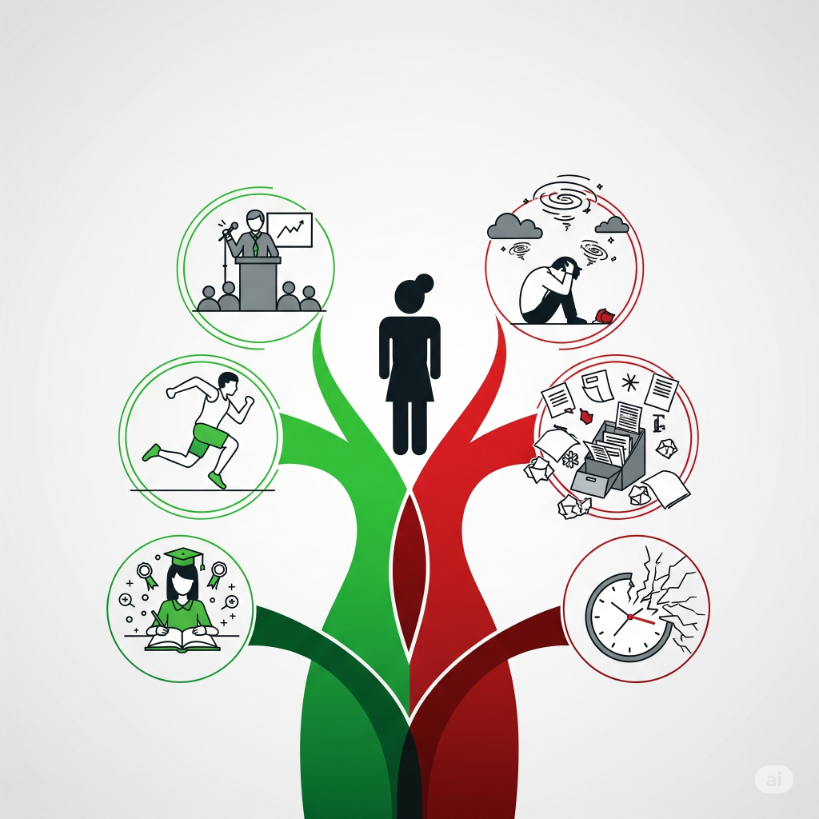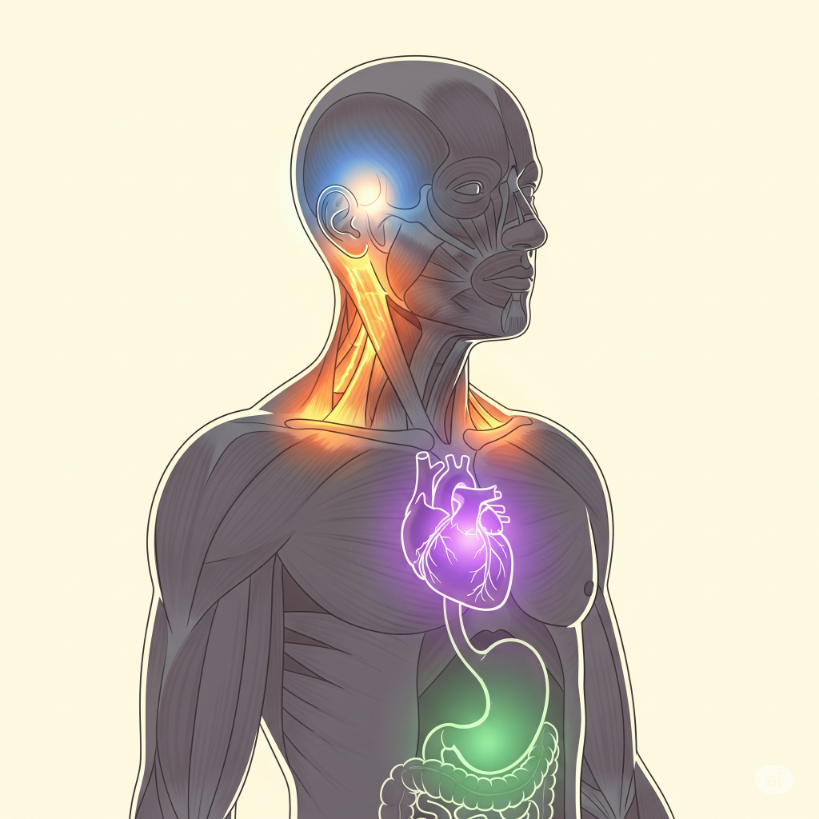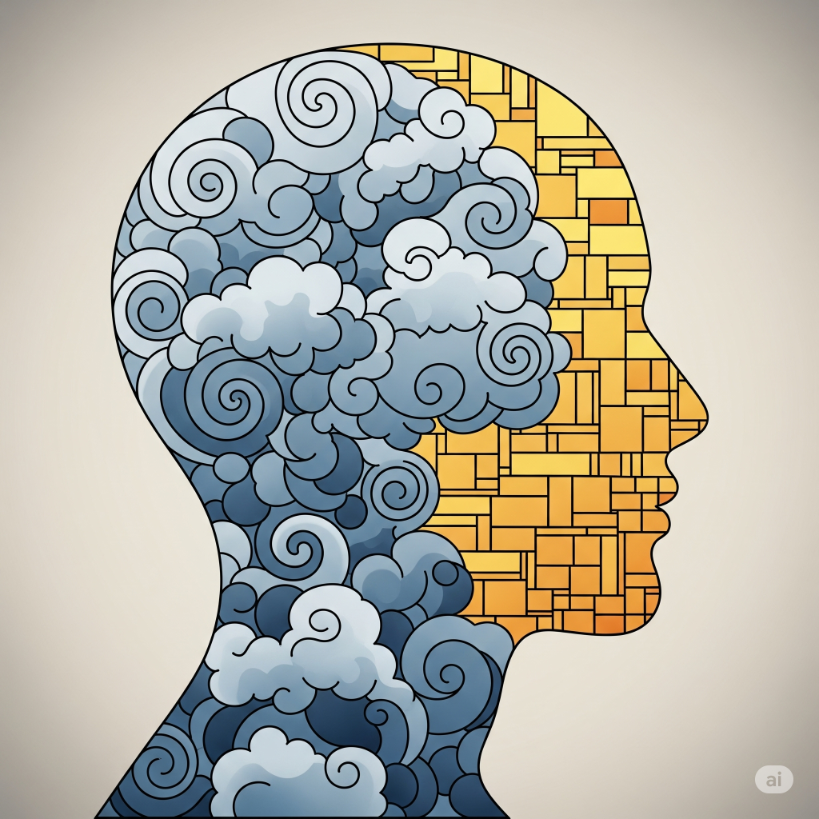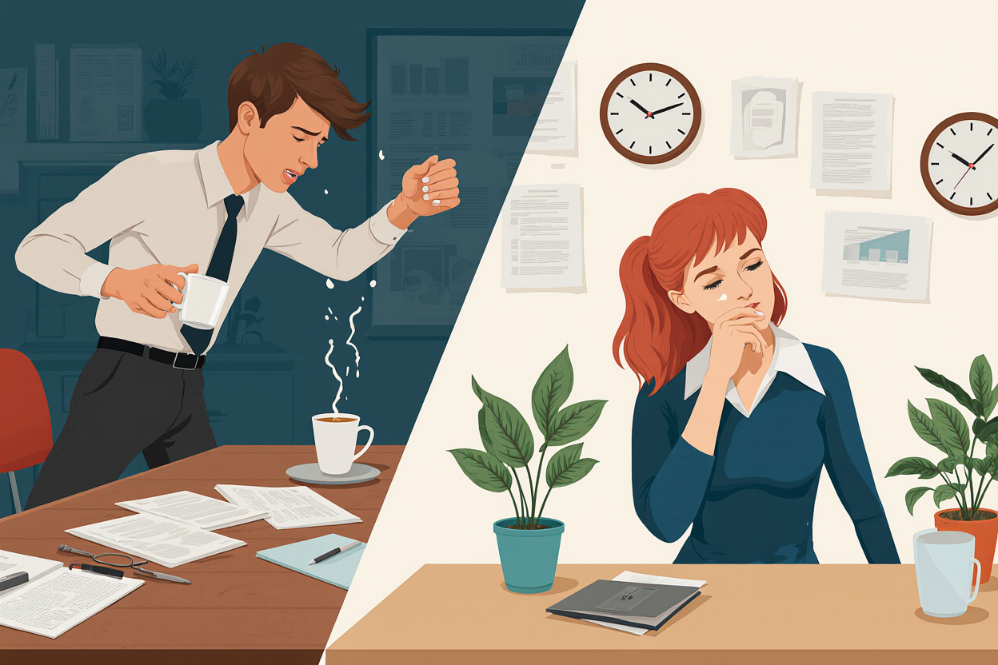Imagine waking up late for a big meeting with coffee on your shirt. Your heart beats fast, your shoulders may tighten, causing a knot in your stomach. This is a common experience of stress for many.
Managing stress is key to better health, stronger relationships, and a happier life. Chronic stress can cause serious health issues, like heart disease and depression. Learning to handle stress is vital.
Table of Contents
This guide will help you understand stress, its sources, and its effects on your body and mind. You’ll learn practical ways to manage stress. Whether you face occasional stress or daily overwhelm, you’ll find solutions to regain calm.
Stress is your body’s way to react to challenges. It’s like an internal alarm system. When you feel threatened, hormones such as cortisol and adrenaline prepare you to respond.
Not all stress is the same. There’s good stress and bad stress:
✅ Good Stress (Eustress):
- Motivates you to meet deadlines and achieve goals
- Helps you stay alert during important presentations
- Pushes you to perform better in sports or creative endeavours
- Usually short-term and manageable
- Leaves you feeling accomplished afterward
❌ Harmful Stress (Distress):
- Overwhelms your ability to cope effectively
- Persists for extended periods without relief
- Interferes with daily activities and relationships
- Can lead to physical and mental health problems
- Often feels uncontrollable or excessive
Knowing when to manage stress is crucial. It helps you avoid harmful stress.
⚡ Common Causes of Stress
💼 Work and School Pressures

Work and school are major stressors. Heavy workloads, tight deadlines, and job insecurity can be overwhelming. Students face similar stress with exams, assignments, and career uncertainty.
Workplace stressors include unrealistic expectations and poor work-life balance. Students also deal with financial concerns and social pressures.
💰 Financial Stress

Money worries affect everyone. Whether it’s paying bills, unexpected expenses, or saving for the future, financial stress is common. It impacts every part of your life.
Uncertainty about the economy and job stability adds to financial stress. Money affects housing, food, healthcare, and future security.
👨👩👧👦 Family and Relationship Issues

Our closest relationships can be a source of joy and stress. Family conflicts, relationship problems, and caring for aging relatives can be emotionally challenging. These issues affect our well-being.
Social pressures, like maintaining friendships and dealing with difficult personalities, add to relationship stress. We can’t avoid these relationships, so finding healthy coping strategies is essential.
🏥 How Stress Affects Your Health
🩺 Physical Symptoms

Chronic stress sends clear warning signals to your body. It’s important to understand and manage stress when you notice these symptoms:
Your heart rate and blood pressure may increase, and you may experience chest tightness. Frequent headaches, muscle tension, and body aches are common, too.
Digestive issues like stomach upset and changes in appetite are also common. You might sleep less, feel tired all the time, or get sick more easily.
Source: American Heart Association – Stress and Heart Health
🧠 Mental and Emotional Effects

Stress affects your mind and emotions too. You might worry a lot, have trouble concentrating, and feel irritable or anxious.
Feeling overwhelmed, helpless, or emotionally drained is common. Making decisions and remembering things can become harder. This can create a cycle of stress.
Source: American Psychological Association – Stress and Mental Health
READ ALSO: From Fresh Breath to Focus: How Chewing Gum Impacts Daily Life
🧠From Fresh Breath to Focus: How Chewing Gum Impacts Daily Life
⚠️ Long-Term Risks
Understanding and managing stress is crucial for your long-term health. Chronic stress can result in significant health issues.
It can cause heart disease, stroke, & high blood pressure. Your immune system weakens, making you more prone to illnesses. Mental health issues like depression and anxiety are also linked to chronic stress.
Sources: Mayo Clinic – Chronic Stress Health Effects | National Institute of Mental Health
🛠️ How to Manage and Reduce Stress
⚡ Quick Stress Relief Techniques

Having quick ways to deal with stress can be a lifesaver. These techniques can help you feel better in just a few minutes:
- 🫁 Deep breathing exercises: Breathe in for 4 counts, hold for 4 counts, then breathe out for 6 counts. Do this 5-10 times.
- 💪 Progressive muscle relaxation: Tense each muscle group for five seconds, then release. Start with your toes and move upward.
- 🧘 Mindful grounding: Name 5 things you see, 4 things you touch, 3 things you hear, 2 things you smell, and 1 thing you taste.
- 🚶 Quick physical movement: Take a 5-minute walk, do jumping jacks, or stretch to relieve tension.

- 💭 Positive self-talk: Replace negative thoughts with positive ones like “I can handle this” or “This feeling will pass.”
Consider trying one of these techniques today whenever you feel stressed!
Source: Harvard Health – Relaxation Techniques
🔄 Long-Term Lifestyle Changes
Sustainable stress management needs broader lifestyle changes. These changes help you stay resilient overall:
🏃 Regular Exercise: Try to do at least 30 minutes of moderate activity most days. Exercise is great for managing stress. It reduces stress hormones and increases the production of mood-boosting endorphins.
⏰ Time Management: Learn to prioritize tasks and set realistic goals. Break big projects into smaller steps. Use planners or apps to stay organised & reduce stress.

🚧 Boundary Setting: Say no to commitments that don’t fit your priorities. Healthy boundaries save your time and energy for what’s important.
👥 Social Support: Keep in touch with friends, family, or support groups. Talking through challenges with others can ease emotional stress and offer new perspectives.
Source: Centers for Disease Control and Prevention – Coping with Stress
🆘 When to Seek Professional Help
At times, you might need professional help to manage stress. Consider seeing a mental health professional if:
- You can’t handle stress, despite trying different ways
- You’re feeling depressed or anxious & it’s affecting your daily life
- You’re using unhealthy coping methods, like too much alcohol or drugs
- Physical symptoms don’t get better despite seeing a doctor
- Stress is impacting your relationships, work, or other important areas
Therapists can teach you special techniques like cognitive-behavioural therapy. Doctors can check if health issues might be causing your stress.
Source: National Alliance on Mental Illness – Getting Help
🌱 Healthy Habits That Help You Stay Calm
Building healthy habits helps you naturally resist stress. These habits support your overall well-being. They help you face life’s challenges better.
😴 Quality Sleep is key to stress resilience. Aim for 7-9 hours of sleep each night. Create a calming bedtime routine and avoid screens before bed. A cool, dark bedroom helps too. When you’re well-rested, you can handle stress better.

🥗 Nutritious Eating gives your body what it needs to deal with stress. Eat whole foods like fruits, veggies, lean proteins, and whole grains. Avoid too much caffeine, sugar, and processed foods that can increase anxiety. Regular meals keep your blood sugar stable, helping your mood and energy.
🏃♀️ Regular Physical Activity is a strong stress buffer. You don’t need to do intense workouts. Even gentle activities like walking or yoga can reduce stress hormones and improve your mood and sleep. Choose activities you enjoy so exercise feels like a stress reliever, not a chore.
💧 Adequate Hydration supports your body’s stress response. Dehydration can raise cortisol levels and make you feel anxious. Drink 8 glasses of water a day and see how it affects your energy and focus.
🧘♀️ Mindfulness and Meditation practices help you deal with stressful thoughts and feelings. Just 5-10 minutes of daily meditation or deep breathing can help you stay calm. There are many apps and online resources to help you get started.
🛡️ Personal Boundaries and Self-Care protect your mental and emotional health. Learn to say no to too much, schedule downtime, and do things that bring you joy. Self-care is not selfish; it’s crucial for managing stress and supporting others.
Sources: Sleep Foundation – Sleep and Stress | Academy of Nutrition and Dietetics
🎯 Final Thoughts
Learning to manage stress is key to your health and happiness. We can’t get rid of all stress, but we can handle it better. This helps us grow and stay motivated.
Improving stress management doesn’t need big changes right away. Small steps can make a big difference. Start with something simple like breathing exercises or a regular bedtime.
Everyone handles stress differently. What works for someone else might not work for you. It’s okay to try different things and be patient with yourself.
What small change will you make today to better manage stress? Taking that first step will lead to a calmer, more balanced life.










Leave a Reply